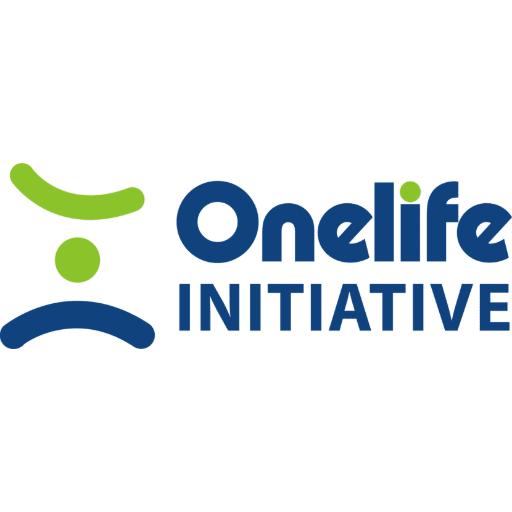Snooping Around #Africa Analytics
At the #Africa Analytics roundtable meeting which held on Wednesday, 28th May, 2014 at The Banquet Hall, Sheraton Hotel and Towers, Ikeja, One Life Inititative for Human Development looked out for the meaning of Analytics for New Media. The Roundtable featured discussion panels made up of bright Nigerian professionals. Three seasoned discussion sessions were on Electronic/Online Media. They were- Competing on strategic analytics: The Nigerian Electronic/Online Media of the Future; Print Media: The Challenge of Analytics Deployment in Print Media industry Sub-segment; Marketing Communications and Advertising: Does Analytics Matter to the Nigerian Advertisers and Corporate Communicators. The Roundtable meeting was organized and hosted by Value Fronteira Limited, Lagos, Nigeria; an economic strategies firm which provides management consulting through data driven solutions.

Ever heard about the Information Highway? Or Information at the speed of The Click of a computer mouse? How do you combine about 30 pages of results in a keyword search on Google into a meaningful factsheet? And when you put in the weblinks you have collected from this Google search, how can you convince another reader, that your information is genuine and can be trusted? Precisely, this was how Analytics was introduced at the meeting by Professor Charles Okigbo. According to him, Analytics is not just about information access, information collection or information arrangement whether online, in school work or in any other way but getting curious about the information/data you have collected and arranged. When you do analytics, you use information or data in a very creative, insightful and innovative such as telling stories with numbers. Professor Okigbo gave a very illustrative example: “A national abduction saga can be counted down to keep the public on its toes and pressure critical actors to take responsive action. Analytics also helps you to map unstructured data/information for example online information (which is about 85% unstructured) into meaningful insights.”
There were a number of questions and answers given to the important features of the issues raised and discussed by panellists from each session. Some thought provoking and fun moments were raised as Mr Clifford Agugoesi of Africa Telecom & IT asked if the number of likes on a Facebook page indicated the real position of an organization offerings or services or popularity in the light of the meaning of analytics. The question was answered in the negative with reference to Professor Okigbo’s earlier highlight about triangulation, a method in Analytics, where insights into data/information is gained by making comparison of another source of data collected on the same issue or question. Similar to this was the question about whether Analytics can tell the whole truth about an issue. Can analytics give a complete answer? Professor Okigbo once again responded by pointing out that analytics by its method and process is an innovation idea phenomenon. It is open to diffusion or change in insight, creativity at any stage.

Further eager questions on how organizations or even key practitioners and users in the broad media (electronic and print media) industry can get to use and benefit from having an analytics culture were thrown to the table. The apt response to this question is that analytics being a tool for performance progression can be become a culture in any media industry or organization if data is continuously collected and analytics performed on collected data on all operational and service factors e.g user trends, customer behaviour, ideology. Examples of such systems include local systems of data collection, predictive systems that can be read through analytics, Brand Health Index e.t.c. Equally related to this was a salient enquiry made by Mr. Bello Adesina, a youth advocate as to how analytics can be used to create employment opportunities for youth as well as empower them to use analytics to create jobs/meaningful employment? It was also a general concern how Education and Training in analytics can be achieved in Nigeria’s vast media landscape of print, electronic and New media. Tutelage programs for example client services for those aspiring to competence in analytics as well as corporate body training were suggested as some real ways to address this concerns.
OneLife Initiative was represented at the meeting by its programs officer, Akin Olatidoye. At the end of the roundtable meeting, the following lines of actions were advocated for and generally adopted in consensus:
- The need for a viral analytical platform serviced by various stakeholders rather than government regulation.
- The importance of creating value-discipline in the application of media so as to help media practitioners stay in close touch with the trends and mood changes in their audiences leading to increased and better productivity using analytics.
- Reviving Institutional Analytics Instruments and bodies like the defunct Audit Production Circulation Centre indices for the print media.
- Integrating marginal actors into analytics platforms e.g Newspaper vendors in print media can be encouraged to return strategic data on their daily sales. The successful integration of marginal actors like newspaper vendors was cited in the cases of India and South Africa.
- Better Visualization of data of information and content online
- Encouraging Convergence Journalism rather than phasing one out for the other. The point that print, electronic and new media can exist and complement one another was stressed.
- An analytics culture revolved around not being technology trendy (i.e buying new technology for improved performance) but being technology S.M.A.R.T


